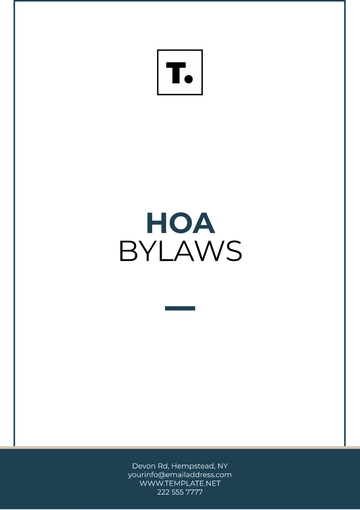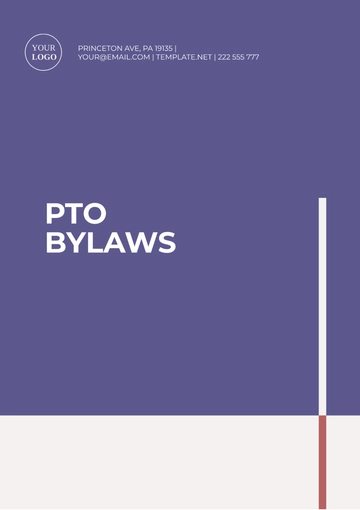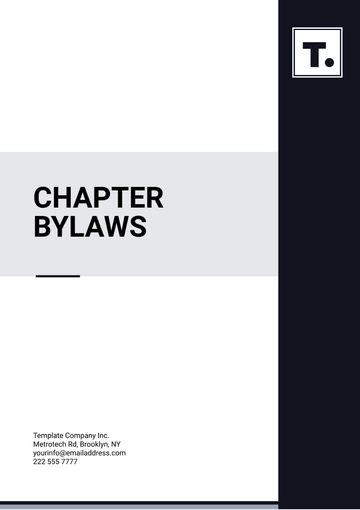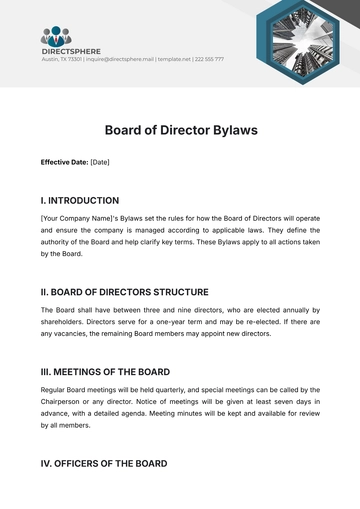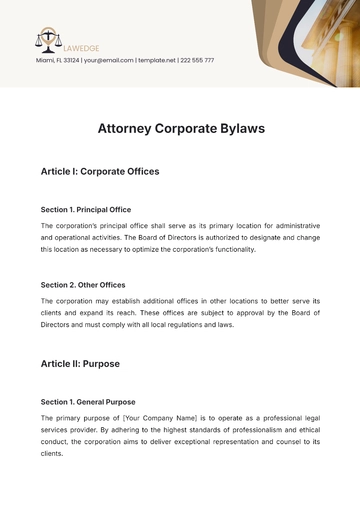Free Medical Bylaws
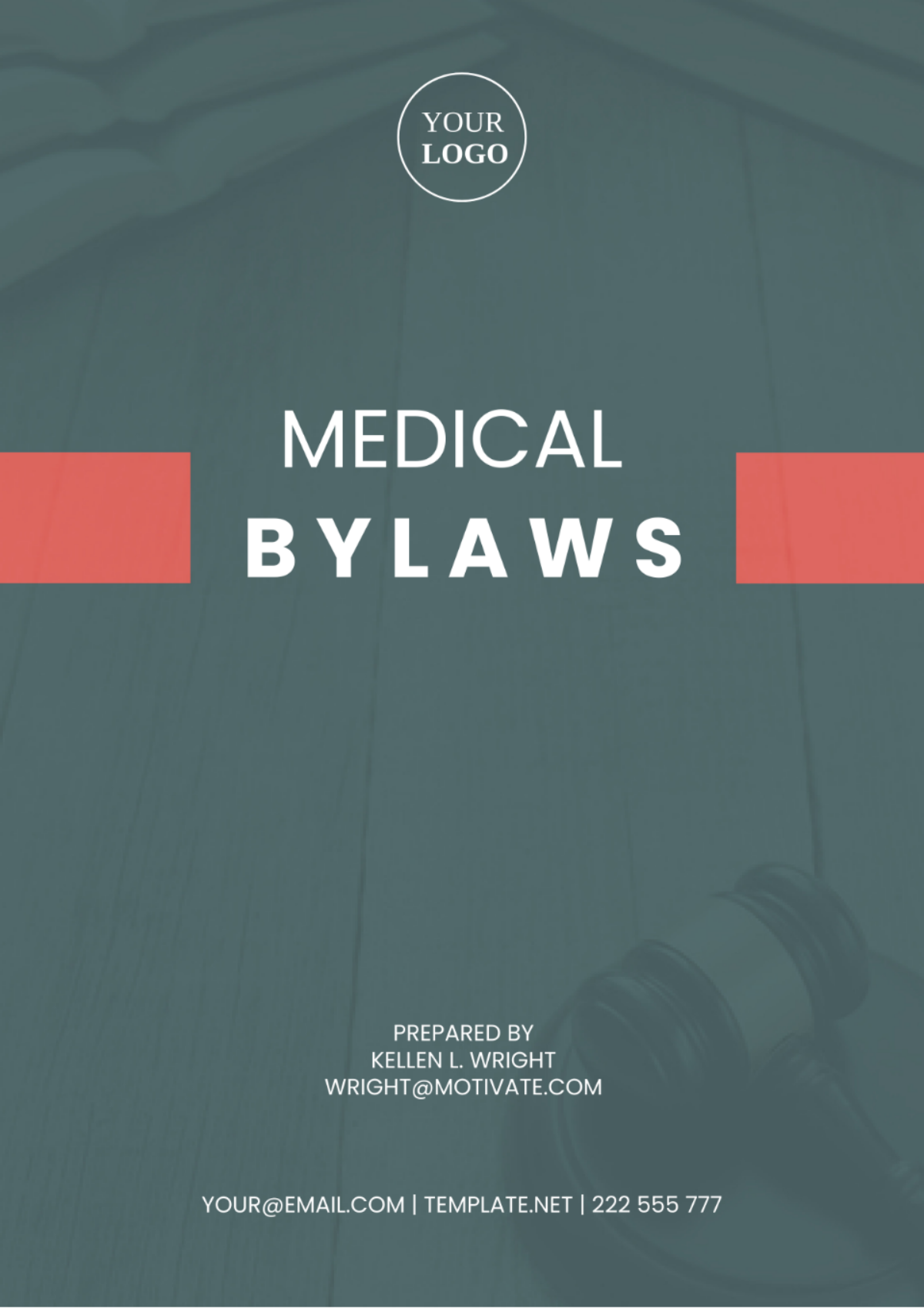
Article I: Introduction
Section 1:
Purpose The purpose of these Medical Bylaws is to establish comprehensive guidelines and standards governing clinical practice within [Your Company Name]. These Bylaws aim to define the scope of medical practice, clinical protocols, standards of care, and guidelines for medical decision-making and treatment to ensure the highest quality of patient care and safety.
Article II: Definitions
Section 1:
Clinical Practice Clinical practice refers to the activities and responsibilities undertaken by healthcare professionals in the diagnosis, treatment, and management of patients' medical conditions. It encompasses a wide range of medical specialties and disciplines, including but not limited to primary care, surgery, internal medicine, pediatrics, obstetrics and gynecology, psychiatry, and specialized areas of medicine.
Article III: Scope of Medical Practice
Section 1:
Professional Scope All healthcare professionals practicing within [Your Company Name] are expected to adhere to the highest standards of professionalism and ethics in their clinical practice. This includes maintaining licensure and certification as required by relevant regulatory bodies, engaging in continuing medical education to stay abreast of advancements in medical knowledge and technology, and upholding patient confidentiality and privacy rights.
Section 2:
Clinical Protocols and Guidelines Clinical protocols and guidelines shall be established and periodically reviewed by the Medical Board to standardize best practices and evidence-based approaches to patient care. These protocols and guidelines may cover a variety of areas, including but not limited to diagnostic procedures, treatment modalities, medication administration, infection control measures, and patient safety protocols.
Article IV: Standards of Care
Section 1:
Definition Standards of care refer to the minimum level of care and treatment that healthcare professionals are expected to provide to patients based on current medical knowledge, professional expertise, and accepted best practices within their respective specialties.
Section 2:
Adherence to Standards All healthcare professionals practicing within [Your Company Name] are required to adhere to established standards of care in their clinical practice. Failure to adhere to these standards may result in disciplinary action, including but not limited to retraining, suspension, or termination of clinical privileges.
Article V: Medical Decision-Making and Treatment
Section 1:
Informed Consent Healthcare professionals must obtain informed consent from patients or their legally authorized representatives before initiating any medical treatment or procedure. Informed consent involves providing patients with information about the nature of the proposed treatment or procedure, its potential risks and benefits, alternative treatment options, and the patient's right to refuse treatment.
Section 2:
Shared Decision-Making Shared decision-making between healthcare professionals and patients is encouraged to promote patient autonomy and collaboration in healthcare decisions. Healthcare professionals should engage patients in discussions about their treatment options, taking into account the patient's preferences, values, and goals of care.
Article VI: Quality Improvement and Peer Review
Section 1:
Quality Improvement [Medical Institution] is committed to continuous quality improvement in clinical practice. Quality improvement initiatives shall be undertaken to identify opportunities for enhancing patient care outcomes, reducing medical errors, and improving overall clinical performance.
Section 2:
Peer Review Peer review processes shall be established to evaluate the clinical competence and professional conduct of healthcare professionals. Peer review activities may include case reviews, morbidity and mortality conferences, and ongoing performance evaluations to ensure adherence to standards of care and promote professional development.
Article VII: Conclusion
These Medical Bylaws serve as the framework for governing clinical practice within [Your Company Name] and are subject to periodic review and revision by the Medical Board to reflect evolving standards of medical practice and regulatory requirements. All healthcare professionals practicing within [Your Company Name] are expected to familiarize themselves with these Bylaws and comply with their provisions in the delivery of patient care.

[Chairperson/Medical Board]
[Date Signed]
- 100% Customizable, free editor
- Access 1 Million+ Templates, photo’s & graphics
- Download or share as a template
- Click and replace photos, graphics, text, backgrounds
- Resize, crop, AI write & more
- Access advanced editor
Explore the comprehensive Medical Bylaws Template, offered by Template.net, designed to streamline your healthcare facility's operational guidelines. Crafted with precision, this template is fully customizable, downloadable, and printable. Effortlessly tailor it to your institution's unique requirements, ensuring compliance and efficiency. Edit with ease using our intuitive AI Editor Tool, empowering you to adapt swiftly to evolving regulations.





